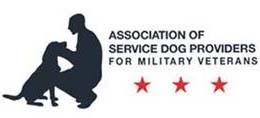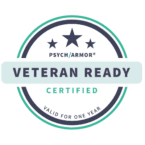Veteran Suicide Prevention
When they complete their military service, service members often have injuries resulting from their service—some visible, some hiding beneath the steely surface. Post-traumatic stress, traumatic brain injuries, and other hidden injuries affect many of our veterans. They come home to face isolation and lack of connectivity. They feel alone and aren’t sure where or how to move forward.
These injuries can lead to other issues including anxiety and severe depression, which without help and support, can lead to suicidal ideation. Death by suicide among veterans ranges from 20 to 22 a day, and deaths by suicide among Montana veterans is about twice the national average.
Veteran suicide prevention is a critical and deeply important initiative aimed at reducing the alarming rates of suicide among former military personnel. Veterans often face unique challenges transitioning back to civilian life, including post-traumatic stress disorder (PTSD), depression, physical injuries, and difficulties reintegrating into society. These factors contribute to a disproportionately high rate of suicide among veterans compared to the general population.
Efforts to prevent veteran suicide involve a multifaceted approach. First and foremost is raising awareness and reducing the stigma associated with mental health issues. Encouraging open conversations about mental health and creating a supportive environment where veterans feel comfortable seeking help is crucial.
Watch combat veteran Tom’s Story
I’m never going to go back to the way I was before military service, but Bomber’s here with me and we’re going to do it together and it’s going to be okay.
– combat veteran, Tom
Dog Tag Buddies’ Mission
Community support and programs like Dog Tag Buddies play a pivotal role. Building strong support networks within communities and veteran organizations can provide a sense of belonging and purpose, reducing feelings of isolation and despair.
Additionally, early identification of at-risk individuals and implementing preventive measures are vital. Training healthcare providers, friends, and family members to recognize warning signs and risk factors for suicide enables timely intervention.
Collaboration between government agencies, healthcare providers, veteran support organizations like Dog Tag Buddies, and the community is crucial for comprehensive suicide prevention strategies.
Ultimately, preventing veteran suicide requires a concerted effort from society as a whole. It demands empathy, understanding, and a commitment to supporting those who have served their country, ensuring they receive the care and assistance they need to lead fulfilling lives beyond their military service.
Dog Tag Buddies is working hard to decrease the suicide rate among our Montana veterans. We pair our veterans with specially selected dogs, then train the veteran to train the dog to become their service dog. Forging new bonds by giving our veterans a new mission through training and building a relationship with their dog is a small piece of the bigger picture.
The program helps them find methods to recognize and manage the symptoms of their disabilities, discourages self-isolation, and helps them find a renewed sense of purpose. These dogs help our veterans by learning how to trust, how to reengage and most importantly, help give our veterans their lives back.
Everything we do is at no cost to the veterans, which includes:
- Obtaining the dog
- Paying for all necessary veterinary care
- Training
- Food
- Supplies
The average cost of training is $23,000 for the first two years. We continue to support our teams through the life of the dog and beyond!
You can help us save lives by supporting Dog Tag Buddies and every dollar helps our mission! Your donations directly fund our efforts to help the veterans and rescues enrolled in our programs.
501(c)3 EIN 47-3759502





